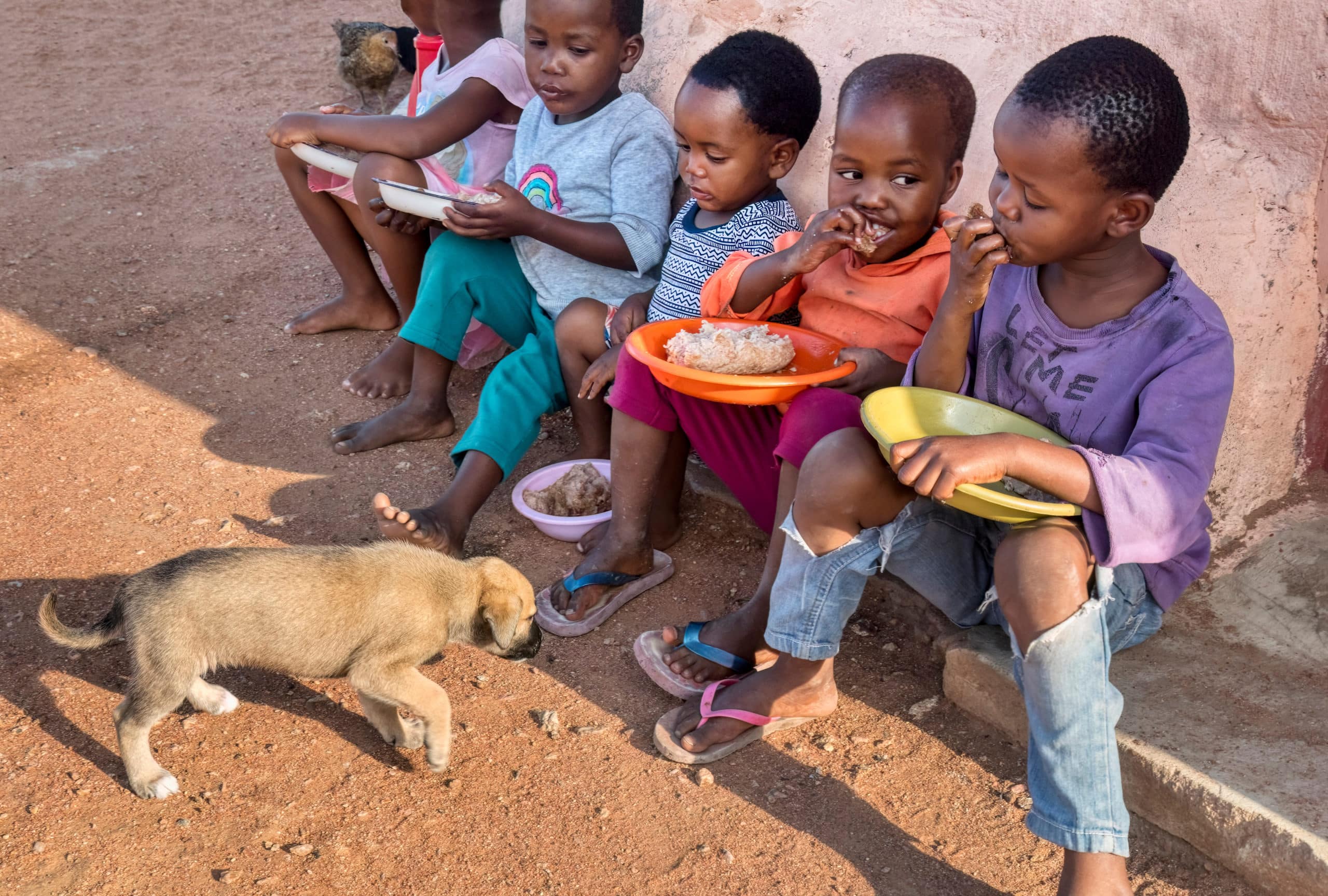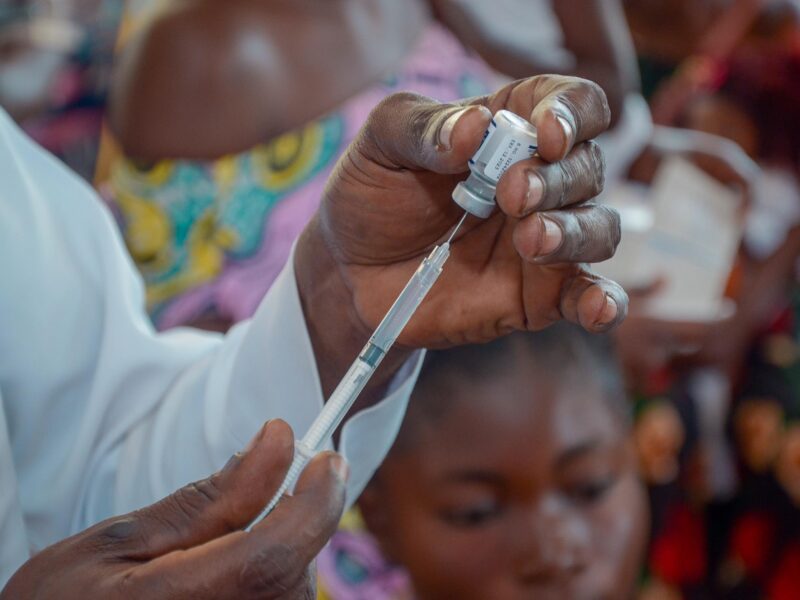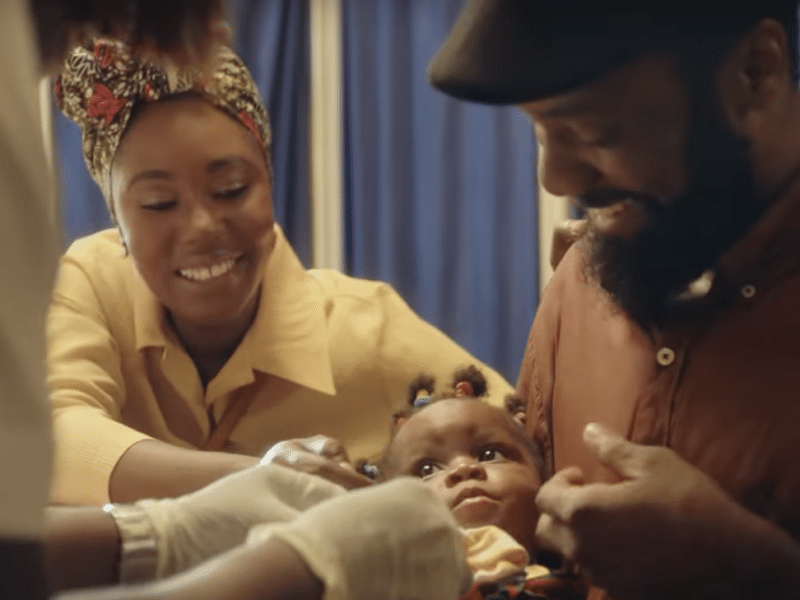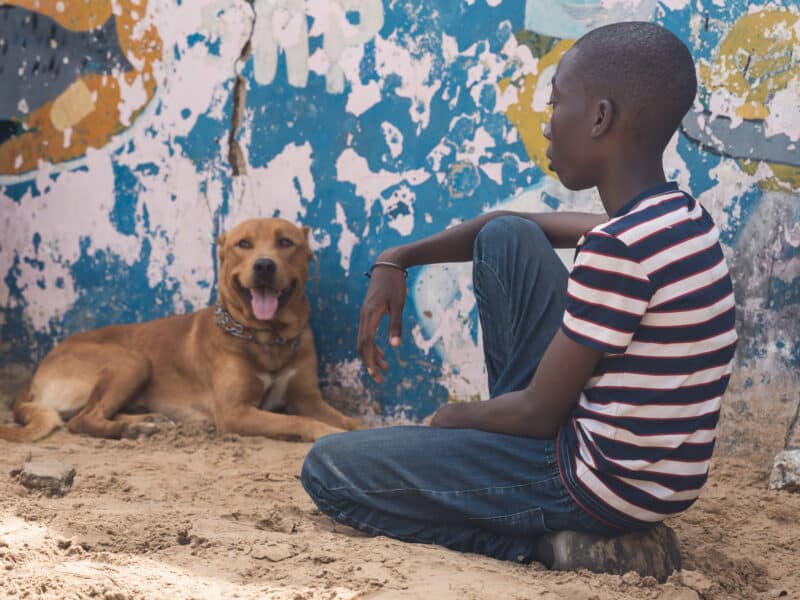Human rabies deaths are preventable: Dogs can be vaccinated against the fatal disease and people who understand the risks of rabies can seek treatment immediately if they suspect they’ve been bitten by a rabid animal.
Yet rabies continues to occur in more than 150 countries and territories and children make up 40 percent of those who are bitten. When the Johns Hopkins Center for Communication Programs-led Breakthrough ACTION project began working in Côte d’Ivoire in 2018, the country logged around 12,000 dog bite victims annually and roughly 20 rabies-related human deaths. Three in five human rabies deaths occurred in rural areas, where just one in 20 dogs is vaccinated.
Since 2018, Breakthrough ACTION has supported a full-spectrum community capacity strengthening approach, training journalists, religious leaders, teachers, student clubs, and numerous local rabies committees on the importance of dog vaccines and the urgency to seek treatment after a bite. They have worked with the government of Côte d’Ivoire to develop a national rabies communication plan targeting parents of children under 15, dog owners and animal health workers. They’ve also created an online training for health professionals and launched an intensive awareness campaign partnering with local radio stations to spread the word far and wide.
“Rabies is a great example of a zoonotic disease that requires a robust attention to social and behavior change – not only in terms of understanding people’s health behaviors, such as seeking medical attention after a dog bite – but in terms of their daily interactions with and care of animals in their homes and in the community,” says CCP’s Jorie Nana, who works with the Côte d’Ivoire team. “Because of the particular risk children face for rabies exposure, effective prevention really requires reaching children, parents, teachers, caregivers and many others who are influential in their lives.”
Nana says that the work has provided a great opportunity to help people better understand how to protect themselves in interactions with animals in their lives – and not just dogs. Similar zoonotic diseases are spread from animal to human, including the virus that causes COVID-19, which is widely believed to have been transmitted from a bat.
“We’re not just training health workers or community health volunteers, but really engaging closely with the animal health side, helping people to see the connections between the health of animals and that of people,” Nana says. “This ‘One Health’ orientation offers lessons for communicating around lots of other zoonotic diseases.”
Today is World Rabies Day, an international awareness campaign designed as a reminder of the global target to eliminate human rabies by 2030. This year’s theme is “Rabies: One Health, Zero Deaths.”
While a formal evaluation of the Breakthrough ACTION rabies communication efforts has not been completed, the behavioral trends are positive, Nana says. In the country’s second largest city Bouake, for example, 231 more cases were seen at regional treatment centers for potential rabies exposures in 2021 than in 2020, suggesting that awareness efforts are encouraging more people to seek immediate attention for possible exposures.
Although many people keep dogs, and periodic vaccination campaigns do occur, rabies vaccination rates in dogs remain low. According to research that CCP conducted in 2019, people in Côte d’Ivoire commonly believe that the vaccines are too expensive and dogs in Cote d’Ivoire are not considered high-value investments, so people tend not to put their money toward keeping vaccines up to date. The research findings helped CCP to design messages that emphasize the truly life-saving benefits of the protection offered by the rabies vaccine.
“We know that rabies is a very dangerous disease,” says Lekouo Traore, president of Bouake’s local rabies control committee. Breakthrough ACTION, he says, “has helped us to increase the awareness in our community, our religious leaders going from village to village and hamlet to hamlet, to be present in schools and all these different community establishments and share the message. Everything we were able to do to raise awareness has paid off. People are visiting rabies treatment centers; they are taking their dogs to get vaccinated.”
Rabies is just one of the diseases that CCP works to address through its USAID-funded projects under the Global Health Security Agenda (GHSA), an international partnership to boost readiness to prevent, detect and respond to public health emergencies.





